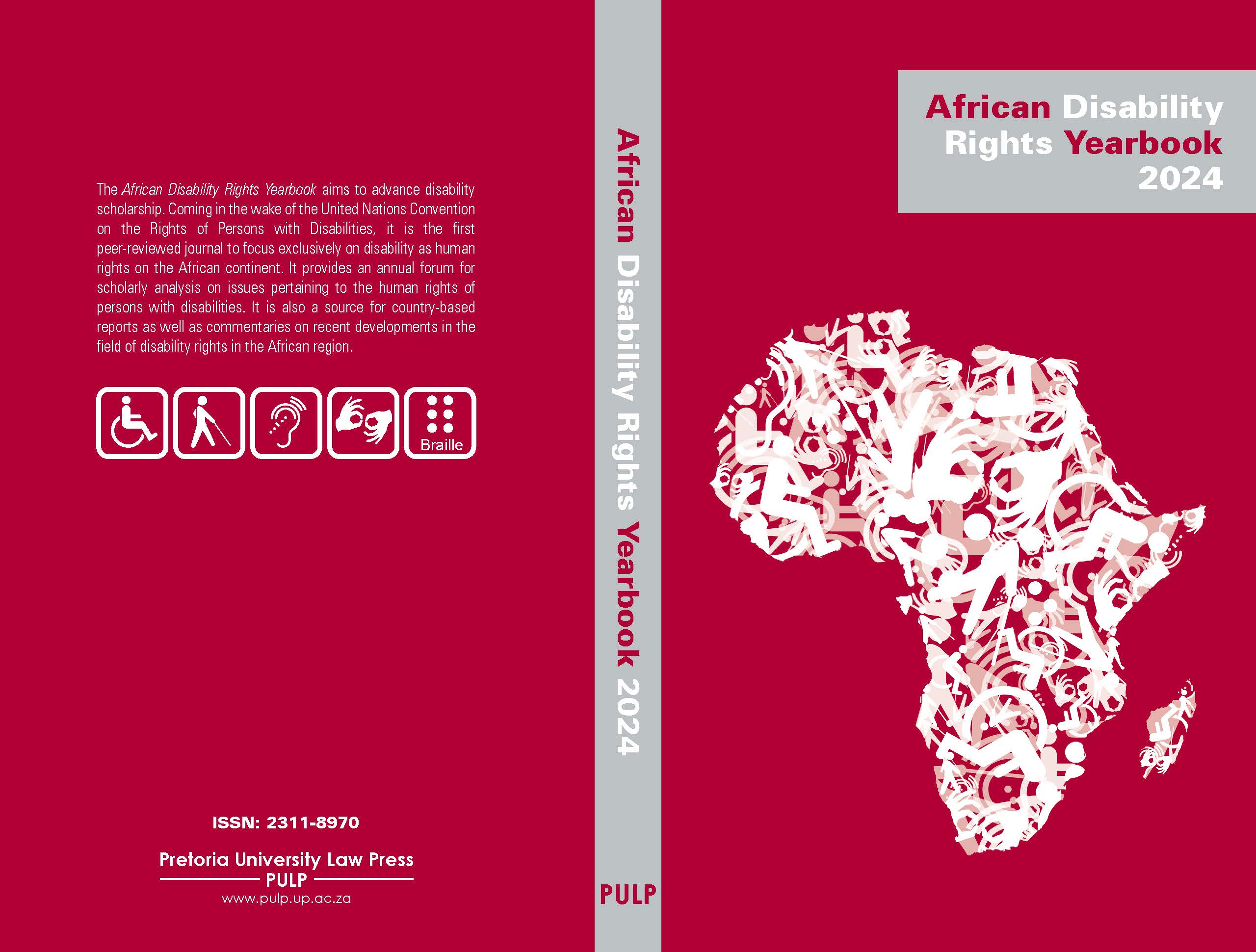A critical analysis of access to maternal, sexual and reproductive health services for women with disabilities in Uganda
DOI:
https://doi.org/10.29053/adry.v12i1.5530Abstract
Global statistics indicate that 15 per cent of the world’s population experience some form of physical, sensory, developmental, intellectual or psychosocial disability. Over 12 per cent of Uganda’s population lives with some form of disability. Disability is an evolving concept that requires adequate attention if barriers, including access to maternal, sexual and reproductive health (MSRH) services, are to be overcome. The interface of MSRH rights and disability rights highlights the intersectionality of discrimination in terms of gender; SRH – as a discourse under the second generation of rights; and women with disabilities as a marginalised group. Hence, this paper positions disability rights as the individual right of a woman with disability requiring specific attention, and as a collective right that must be mainstreamed in all legal and policy frameworks. Although experiencing the same maternal healthcare needs as non-disabled women, women with disabilities face different challenges in both the seeking of and the delivery of MSRH services. Reproductive health laws and policies guiding MSRH planning and budgeting, have poorly acknowledged women with disabilities’ voices and lived experience. Consequently, barriers continue to manifest themselves, not only in social attitudes but also in women with disabilities’ priorities, environmental access to, and appropriately formatted information on MSRH services. This paper
provides a critical analysis of existing laws and policies on MSRHR for women with disabilities. It identifies gaps and provides recommendations to promote inclusive MSRHR services for women with disabilities. It presents a qualitative study of literature on existing policies, frameworks, laws and reports, benchmarking them against global commitments and international human rights instruments. It is also enriched by in-depth interviews of key stakeholders in the central region of Uganda.


